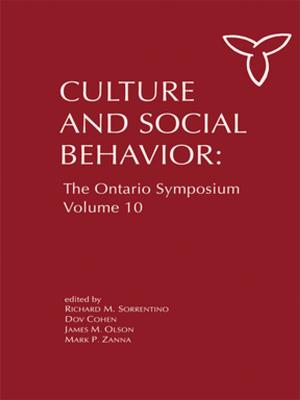Passion for the Human Subject
A Psychoanalytical Approach Between Drives and Signifiers
Nonfiction, Health & Well Being, Psychology, Mental Health| Author: | Bernard Penot | ISBN: | 9780429917165 |
| Publisher: | Taylor and Francis | Publication: | June 14, 2018 |
| Imprint: | Routledge | Language: | English |
| Author: | Bernard Penot |
| ISBN: | 9780429917165 |
| Publisher: | Taylor and Francis |
| Publication: | June 14, 2018 |
| Imprint: | Routledge |
| Language: | English |
Each one of us has to be born "inter urinas et faeces", as St. Augustine so strikingly put it. More recently, Freud's 1915 discovery of 'instincts' - that is, 'drives' - and their 'viscitudes' leads us further to envision a human subjectivity that would have nothing mataphysical about it. The baby's "feeling of himself" first arises in the midst of the earliest interactions with his parental partner, establishing his 'drive monatges' whose acomplishment forms a circuit latching on to something in the first other. In the course of these early interactions, the 'new subject' evoked by Freud will gradually take on its own qualities, accoridng to the signifcations that it can grasp in the primordial partner's messages, responding to the baby's manifestation of needs. One of Lacan's key ideas is that 'signifiers' are percieved first of all in the Other. The Freudian subject may then be defined as 'an agent of corporeal energy caught up in a signifying relation with his parental other (already a subject)'.
Each one of us has to be born "inter urinas et faeces", as St. Augustine so strikingly put it. More recently, Freud's 1915 discovery of 'instincts' - that is, 'drives' - and their 'viscitudes' leads us further to envision a human subjectivity that would have nothing mataphysical about it. The baby's "feeling of himself" first arises in the midst of the earliest interactions with his parental partner, establishing his 'drive monatges' whose acomplishment forms a circuit latching on to something in the first other. In the course of these early interactions, the 'new subject' evoked by Freud will gradually take on its own qualities, accoridng to the signifcations that it can grasp in the primordial partner's messages, responding to the baby's manifestation of needs. One of Lacan's key ideas is that 'signifiers' are percieved first of all in the Other. The Freudian subject may then be defined as 'an agent of corporeal energy caught up in a signifying relation with his parental other (already a subject)'.















